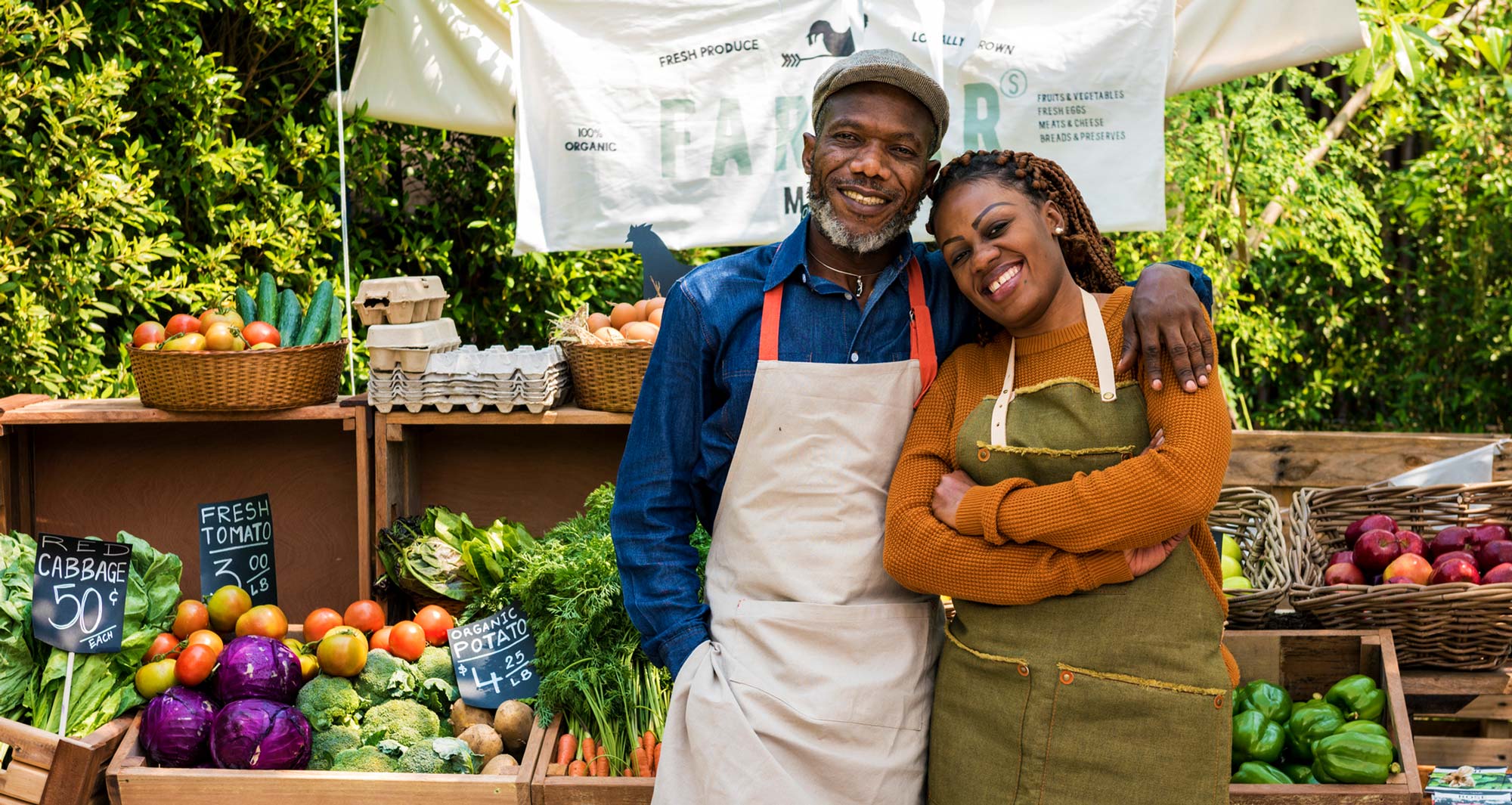If you’ve ever stopped by your neighborhood farmers market, the bountiful bunches of kale, locally crafted cheeses, seasonal fruits, and freshly baked bread are all results of a local food economy.
Eating local means enjoying more locally grown produce and other foods from farmers and producers in your community.
Several benefits come from eating local food, including environmental, economic, social, and health benefits.
Here are 7 fantastic benefits of eating local.
Maskot/Getty Images
Local food is very fresh
Food that’s grown or produced in your community isn’t imported from distant states or countries like a lot of supermarket items.
This means that local food, especially produce, is often extremely fresh and tastes better than nonlocal items. If you’ve ever enjoyed a perfectly ripe tomato or crate of strawberries from your farmers market, you know what I mean.
Local produce sold at farmers markets may be picked or harvested just a day or two before — or on the morning of the market.
As a result, some fruits and veggies can stay on the vine to ripen longer or may have more favorable growing conditions than they would if they had to travel to the grocery store. Depending on the type of produce, this may make them sweeter, juicier, and tastier.
Other types of local food, such as eggs from a farmer who raises chicken, are also usually fresher than options that come from farther away.
Most chefs and home cooks probably agree that the freshest ingredients tend to produce the best-tasting dishes. Of course, using fresh, local foods isn’t the only way to cook enjoyable meals, but it’s certainly a treat for your taste buds.
Local food is often more nutritious
Fruits and veggies may lose some of their nutrients during transportation and processing or while sitting on grocery store shelves.
Vitamin C, an important water-soluble nutrient that’s necessary for healthy skin and tissues, begins to degrade in fresh fruits and veggies shortly after harvesting (1Trusted Source).
What’s more, the antioxidant content of some produce declines during storage. Getting antioxidants from foods is important to fight reactive molecules called free radicals that contribute to disease (2Trusted Source, 3Trusted Source).
Since locally grown produce usually doesn’t have to travel very far or sit in storage for long, it retains more nutrients.
Although this may not always be the case, chances are the fresh asparagus at the farmers market is more nutritious than the bunch you see at the store from a distant place.
It’s important to note that all types of fruits and veggies — fresh or frozen, local or nonlocal — provide important nutrients and are good additions to your diet.
Yet, if you have the opportunity to purchase locally grown options, you may get the biggest bang for your buck when it comes to nutrition.
Eating local is an opportunity to try new foods
If you shop at farmers markets or local food co-ops, you’ll likely be introduced to a new or unique food that’s grown in your area.
Discovering these items is an excellent way to learn more about the food history and agricultural practices of your community. You may even find a new favorite food or ingredient.
Over years of shopping at farmers markets, I’ve tried locally grown and milled flour, cave-aged cheeses, teas made from herbs and plants foraged in my state, and so many interesting products.
Signing up for a community-supported agriculture (CSA) share is another great opportunity to expose yourself to local foods that may be new to you. CSA boxes are filled with produce and prepared directly by farmers for consumers.
These boxes sometimes contain unique veggies or fruits, including romanesco, celeriac, radicchio, and pattypan squash, which are difficult to find in stores.
Purchasing local food benefits the environment
Supporting local farmers and food purveyors supports the environment.
Less pollution and lower carbon footprint
As I noted above, local food travels a shorter distance to markets and stores than products that come from other areas. Thus, their transport usually contributes to less pollution and fewer carbon emissions than foods that necessitate longer trips.
According to the U.S. Department of Agriculture (USDA), there’s no standardized distance that characterizes foods as local. Instead, stores typically use a set distance or state boundary to make this distinction (4).
Some local foods may come from a farmer or purveyor right down your street, while other local items may be grown 100 miles away. Still, this is a lot closer than a farm thousands of miles away or in a different country.
Less waste and plastic packaging
A lot of local foods, especially produce, are sold at farm stands without packaging. Plus, you can bring your own reusable bags to carry the items home. This equates to less waste, particularly of plastic packaging and plastic bags.
As a bonus, local produce doesn’t need to undergo processing, which preserves foods but contributes to waste (5).
Healthier ecosystems
Finally, supporting local farmers helps maintain green spaces and farmland in your area. Local farms that use sustainable practices may boost biodiversity, protect pollinators that are vital to healthy ecosystems, and promote clean air, water, and soil.
Eating local supports your regional economy
When you buy local food, your money is likely to continue to circulate within the local economy.
Some studies suggest that local food has a multiplier effect, meaning it contributes to increased employment and income in a community, among other positive effects (7).
For the same reason that a stimulus package boosts a national economy, spending money in your community may boost the local economy.
Local businesses not only provide jobs for community members but also their owners and employees are more likely to cycle their incomes back into other local stores and institutions — further reinforcing the regional economy
Eating local teaches you how your food is grown
One of my favorite things about buying local food is making connections with farms and food producers.
Building relationships with those who grow your food is a great way to build community. At the same time, you can ask questions and learn about farming practices. Such connections may help you develop a deeper appreciation for your food.
Personally, I feel more satisfied and mindful when I have a connection to the food that I eat. Just like using a favorite family recipe, enjoying local food can evoke positive emotions and boost your spirits.






